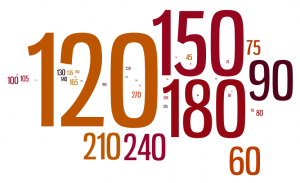I remember reading somewhere once, I don’t know if it’s true or not though, that if the Earth was the size of a golf ball it would be almost entirely smooth. Holding it in one’s hand we would not notice any mountains, the Grand Canyon would be indistinguishable and so would the deepest ocean trenches.
Seen from a great distance or a different scale, the massive seems inconsequential. Yet from inside the Grand Canyon, you’re dwarfed by what’s around you. On a workshop once, a postgraduate researcher shared with me that they loved their research field, but that they were struggling to find something to focus on.
“After all,” they said, “It’s hard to find a gap in a chasm.”

